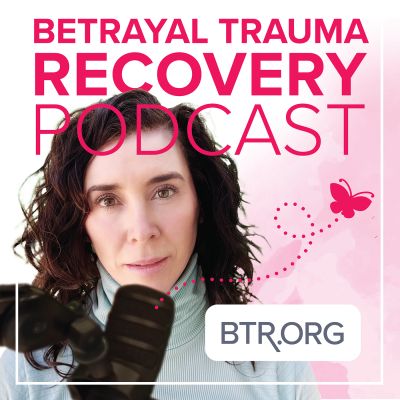btr.org - btr.org has daily, online Group and Individual Sessions for victims of emotional & psychological abuse and sexual coercion. For women experiencing pain, chaos, and isolation due to their husband’s lying, gaslighting, manipulation, porn use, cheating, infidelity, emotional abuse, and narcissistic abuse. Labeling a victim as "codependent" is a form of victim blaming. Pornography addiction / sex addiction are a domestic abuse issue. Narcissistic abuse is not a communication issue. We help women who are married, separated, or divorced heal through establishing emotional safety. If you suspect your husband is a narcissist, a pornography addict, or emotionally abusive, this podcast is for you. Every woman on our team has experienced betrayal trauma first hand. To learn more about Betrayal Trauma Recovery, visit BTR.ORG
https://www.btr.org/podcast/
episode 185: How To Support Betrayal Victims
Are you the family member, friend, clergy, or therapist of a victim of betrayal and abuse?
Do you want to know how to help and support her on her journey to healing?
BTR is dedicated to helping you be a validating source of support to the courageous shero in your life.
Read the full transcript below and listen to the free BTR podcast, as Miss C, a member of the Betrayal Trauma Recovery community joins Anne on the free BTR podcast to share how others can be a pillar of strength to victims on their journey to healing.
Support Betrayal Victims By Accepting Reality
When family, friends, and others minimize, deny, or "silver-line" reality, they are harming victims. Accepting reality, and voicing that acceptance, is a powerful way to support victims.
Phrases like:
* He abused and betrayed you* You are a victim of abuse* I want to support you * None of this is your fault* This is a serious situation* I believe you* I stand fully with you* I am on your side
Are powerful ways of both accepting reality and showing solidarity with the victim.
Support Betrayal Victims By Supporting Their Boundaries
A pivotal moment in every victim's story is the moment that she begins setting and internalizing her boundaries. When you fully support her in her boundaries, you are empowering her to stay strong in her own power. You can support her boundaries by asking her questions like:
* "How can I support you in holding your safety boundaries?"* "Is there anything I'm doing that is making you feel unsafe or insecure?"* "Can I help you hold your boundaries?"* "Is there anything I can do to reassure you that I fully support your boundaries?"
Support Betrayal Victims By Understanding That Healing Takes Time
When victims feel rushed into healing, they may isolate themselves or feel ashamed.
You can offer incredible amounts of support by understanding that healing takes time. Continuous, unrelenting, compassionate support over long long periods of time is an invaluable way to support victims of betrayal.
Sometimes victims receive a lot of support after a particularly egregious incident, only to be ignored or marginalized in the weeks, months, or years that follow. During that time, victims are still suffering from the aftershock and need as much, or more, support.
By offering a continuous flow of support, you can be instrumental in helping victims feel loved, validated, and supported through their healing journey.
https://www.youtube.com/watch?v=HshaIFlj4vo
Full Transcript:
Anne: Welcome to Betrayal Trauma Recovery, this is Anne.
Before we get to today's episode, BTRG is our daily online support group. We have 21 plus sessions per week for you to choose from. You don't have to wait for an appointment, you don't have to leave your home. We'd love to see you in a session today.
For everyone who has given this podcast a five-star rating on Apple podcast or other podcasting apps, thank you so much.
